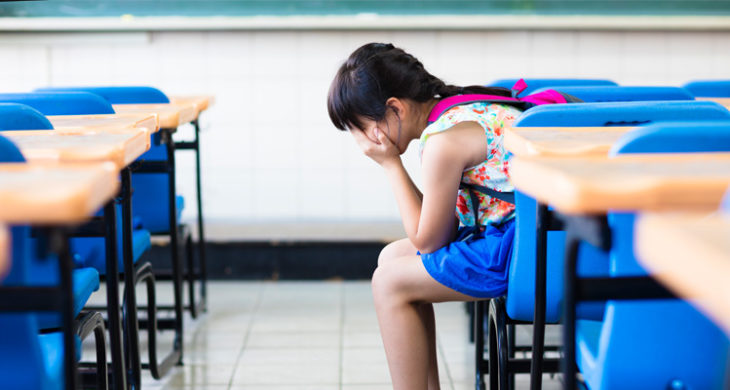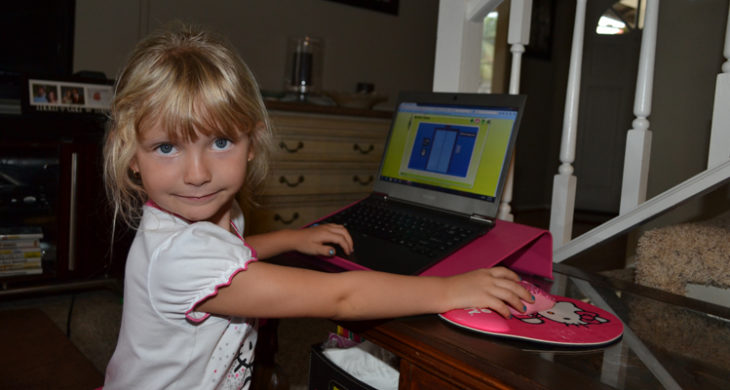Stress may be something most people associate with adulthood, but kids can experience stress and anxiety too. In fact, some high school kids show as much or more stress signals than many adults, and kids of all ages can internalize negative life factors without parents or teachers realizing it. While some stress is natural and even beneficial, extreme or chronic stress can negatively impact the way a child learns.
What causes stress for kids?
Like adults, kids can experience stress for a variety of reasons. In a survey conducted by WebMD, parents said social circles and school were the biggest stress factors for their kids. Other factors for stress can include family dynamics, schedules that are always full, increased pressure to succeed, and fears (which are often made worse by constant access to news and information).
One study, which included data about 10,000 children in first grade, noted a correlation between adult stress in the classroom and the stress students may deal with in the same space. Issues such as budget and resource constraints, poor teacher/student ratios, and teachers who struggle with colleagues or the system can all impact children.
What is the impact of stress on learning?
Regardless of why kids are feeling stressed, parents should be aware of the effects of stress on learning.
A study from the University of California at Irvine notes that even short-term stress, such as might occur during a fight with a friend or before a difficult exam, can negatively impact memory and learning. The study noted that even stress that lasts for only a few hours impairs communication between brain cells that are required to property ingest and remember information.
It’s not a finding unique to the UC Irvine research, either. Chronic stress—which lasts for days, weeks, or even months—is also known as toxic stress. Kids who feel extreme pressure to perform well in academics or athletics or who are dealing with issues at home can experience this type of stress, which they may not know how to handle. That causes the brain to overextend fight or flight reactions, which can lead to agitation, problems focusing, aggression, or impulsive behavior.
Toxic stress can also cause:
- A lack of flexibility, making it difficult for students to switch between subjects or concepts
- Problems with paying attention
- Social issues that can impact behavior and performance in the classroom
- Self-esteem struggles that keep children from trying harder at learning
- An increased risk of anxiety or even anxiety disorders
How can parents help kids deal with stress?
Stepping in to live a child’s life for them and remove any stress at all isn’t healthy, but parents can take steps to mitigate chronic stress that can lead to long-term issues with learning. Some steps include:
- Not putting adult-level stress, such as details about financial concerns, on the shoulders of children
- Reducing the number of scheduled activities and ensuring free-time and stress-reducing fun activities are part of the schedule
- Model and encourage good habits and self-care for kids, including:
- a healthy diet
- a sufficient amount of sleep each night
- plenty of exercise
- taking deep breaths throughout the day
- Talk things through often with kids, and help them develop skills to face their own problems with proactive solutions
- Encourage older kids to start keeping a journal to help process thoughts
When parents act to relieve their own stress, that often has a trickle-down effect. By working to reduce stress across the entire family, adults can positively impact learning for kids.
If a child’s stress is chronic and can’t be eliminated, parents may want to consider changing schools. When a child’s key stressors are occurring at school, effective learning can be extremely difficult. Many students find learning in the more peaceful environment of a virtual school to be helpful and effective. If you think your student would learn more effectively in an online school, visit K12.com to find a school near you and to learn more about how online school works.
,










